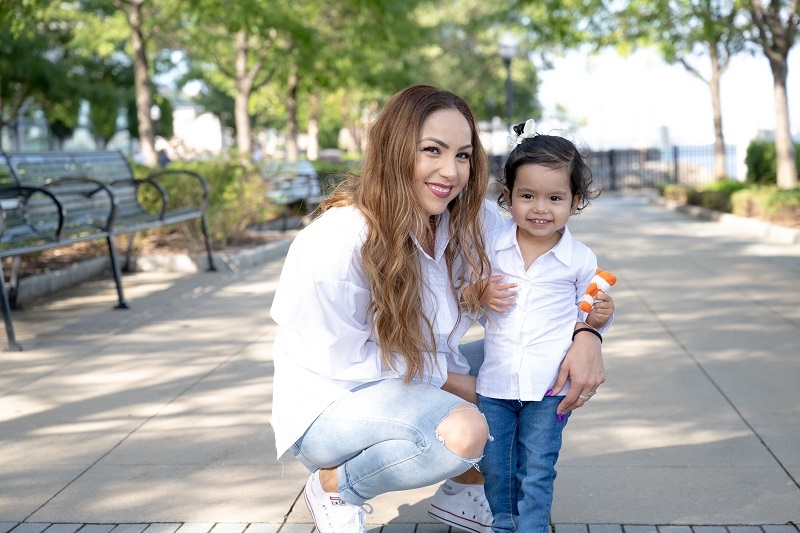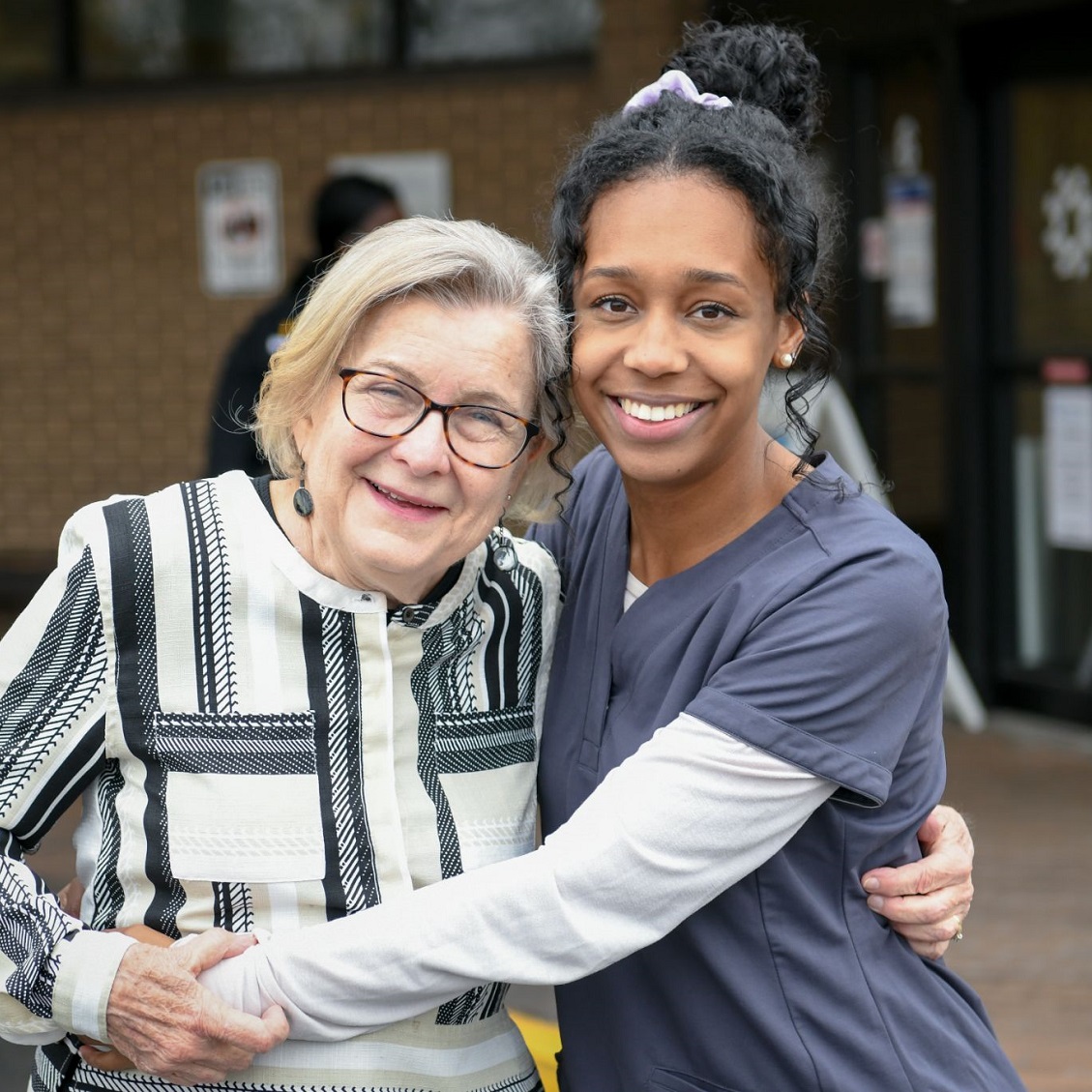Young On-air Radio Host Becomes Unlikely Stroke Patient

September 27, 2023
After a vigorous workout in May 2019, Marisol Vargas dismissed two weeks of blurry vision and headaches as work-related stress. But the North Bergen, New Jersey, resident was actually feeling the effects of a tear in her carotid artery that likely stemmed from her workout—and would soon blossom into a stroke.
Marisol, who was about to turn 36, was cleaning up from her birthday party when she felt an odd tingling on the side of her nose, near her cheek. A few minutes later, her tongue also felt tingly and she couldn’t get any words out when talking to her husband, Alex. But after he called 911 and first responders arrived, Marisol still needed to convince them that, despite her young age, she wasn’t experiencing something minor.
Up to 15 percent of the nearly 795,000 people who have a stroke each year in the United States are between 18 and 45 years old, according to the American Heart Association. While rare, dissections or tears in the lining of a neck artery—which then form a blood clot—are one of the most common causes of stroke in people under 50, says Reza Karimi, M.D., neurosurgeon at Hackensack Meridian Neuroscience Institute at Hackensack University Medical Center.
“I’d always been considered very healthy and rarely went to a doctor,” recalls Marisol. “In the ambulance, one of the EMTs handed me a mirror and asked if my face always looks like that—half of it looked a little frozen. After I said no, they turned the siren on.”
Sophisticated Imaging
Marisol was taken to Palisades Medical Center, where waiting doctors immediately administered a powerful clot-busting drug called tPA (tissue plasminogen activator). Her symptoms quickly eased, but Marisol’s precarious situation necessitated transferring her by helicopter to Hackensack, which has been designated a Comprehensive Stroke Center by the Joint Commission.
Dr. Karimi led her care there, using sophisticated imaging that showed Marisol now had adequate blood flow to both sides of her brain and wouldn’t require the insertion of a cage-like stent to prop open her carotid. He treats about a dozen patients each year like Marisol, whose strokes are caused by a dissected neck artery from high-intensity fitness programs or extensive neck bending.
“Since we had a special scan that showed good blood flow despite a complete carotid blockage, we knew it was safe to treat her with blood thinners and by raising her blood pressure to promote flow to the brain,” Dr. Karimi explains. “If you have a lot of experience with these types of patients, like we do, you know who can be managed through medical means instead of higher-risk interventional procedures.”
New Baby, New Perspective
After more than a week of brain monitoring in the hospital, Marisol returned home feeling emotionally fragile and afraid of experiencing another stroke. Fortunately, her body healed quickly. Within four months, imaging scans showed Marisol’s carotid artery had completely reopened from blood thinner medications. “Instead of walking around with three working arteries to her brain for the rest of her life, she has four again,” Dr. Karimi says.
After graduating to a daily baby aspirin regimen to ensure her continued recovery, Marisol—an on-air host for Sirius XM’s “Caliente” show and a freelancer for Telemundo—turned toward the future. She gave birth to her daughter, Isabella, in October 2021, and her uncomplicated pregnancy and planned cesarean delivery were closely monitored by Hackensack doctors.
“Of course, this whole experience has changed me a lot. It makes me not want to waste my time,” says Marisol, now 40. “I’m a very positive, outgoing person, and even more so now. One thing I tell everyone is to listen to your body, which I didn’t do with my headaches and blurry vision. Your body is telling you to slow down or get checked out.”
Next Steps & Resources:
- Meet our source: Reza Karimi, M.D.
- To make an appointment with a neurologist near you, call 800-822-8905 or visit our website.
The material provided through HealthU is intended to be used as general information only and should not replace the advice of your physician. Always consult your physician for individual care.






